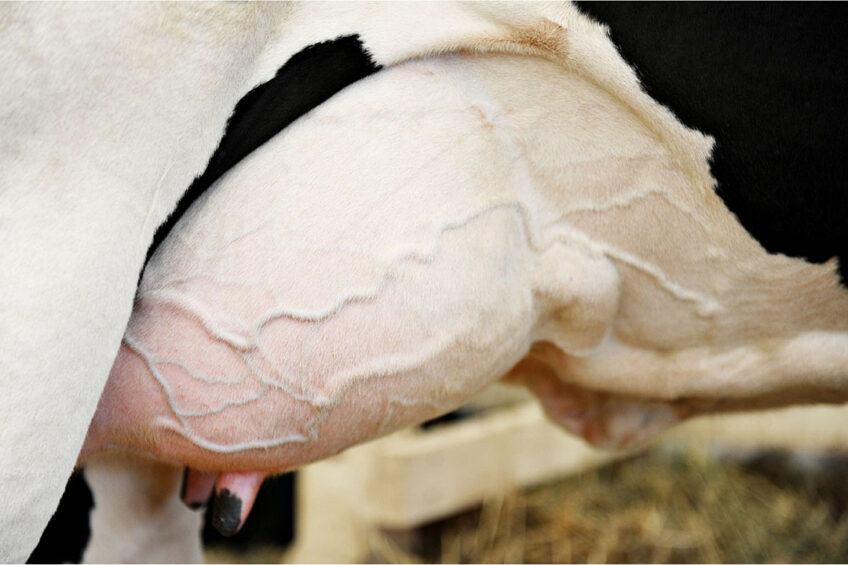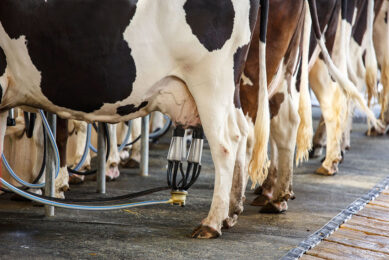Mastitis: Where are we now?

Mastitis has been a front-of-mind topic of discussion in the dairy world and has also been researched extensively over the years. As one of the most common diseases affecting dairy cows, mastitis is a significant area of concern for both farmers and veterinarians.
Mastitis can severely affect the health and milk production of dairy cows and is often the reason for increased culling rates. The annual global cost to farmers of the disease can be as much as USD$19.7 billion to US$32 billion.
Despite extensive research and the availability of various treatments to manage mastitis, the problem persists and requires ongoing attention from farmers and veterinarians. Mastitis prevention tips, best practice and treatment methods are shared within the industry to improve cow health and milk production, and ultimately to save costs.
Currently, consumers worldwide are struggling with the rising cost of living due to the effects of many issues and events. The higher price of dairy food items is an additional challenge. For example, the increased price of milk in Japan has reduced consumer demand for milk, and farmers have incurred huge losses and had to dispose of excess milk supply.
It is crucial to ensure that milk remains affordable for consumers despite market volatility. Additionally, consumer demands for improved quality and regulations require more prudent use of antimicrobials.
Treating mastitis
Treating mastitis appropriately has never been more critical. Antimicrobials in the form of intramammaries or systemic injections have proven to be a very effective treatment.
Yet, now more than ever, the world is aware of and concerned about the inappropriate use of antimicrobials, which can negatively affect the ecosystem in the long term. The biggest concern is that many farmers use antibiotics as a blanket treatment for all cows suspected of having mastitis, without a proper diagnosis.
As diagnosing these cows is time-consuming, antibiotics are often given to all cows as a way to treat the disease promptly. This is not the most efficient treatment approach because it costs more due to wasted milk, labour and treatments, and increases the potential for antimicrobial resistance over time.
The use of adjunctive treatments such as non-steroidal anti-inflammatory drugs (NSAIDs) is well researched and has been shown to have a beneficial impact on mastitis. Such treatments can be used at the time of mastitis detection.
As identification of the pathogen type is required to determine the right course of treatment, the diagnostic stage is critically important in the treatment process. Two of the most common tests used purely for detecting mastitis are the somatic cell count and the California mastitis test. These tests detect and measure (semi-quantitatively) the number of somatic cells present, with an increased level indicating the presence of mastitis.
A clear distinction, a huge advantage
Advances in the technology of diagnostics have made it efficient to effectively treat the many potential causes of mastitis. A test that generates faster and more accurate results would become a gold standard in identifying the type of pathogen or identifying gram-positive cows. Current knowledge suggests that only infections caused by gram-positive bacteria benefit from antibiotic therapy.
With growing pressure on farmers to reduce antimicrobial use, a tool that could successfully distinguish between gram-positive and gram-negative cows would be a huge advantage. It would allow producers and veterinarians to treat the disease more effectively and not waste resources unnecessarily. Having a quick, simple and effective diagnostic tool that could be conducted by even the most inexperienced user would be a game-changer.
Progress is needed sooner rather than later as the problem of mastitis is long-standing. With extensive scientific knowledge and diagnostic technologies now available, advancement in this area should be imminent.
Farmers and veterinarians depend on experts and key players in the animal health industry to innovate and revolutionise diagnostics and treatment methods to create better supply, decrease production cost, reduce the use of antibiotics and maintain healthy and happy cows.
Join 13,000+ subscribers
Subscribe to our newsletter to stay updated about all the need-to-know content in the dairy sector, two times a week.



